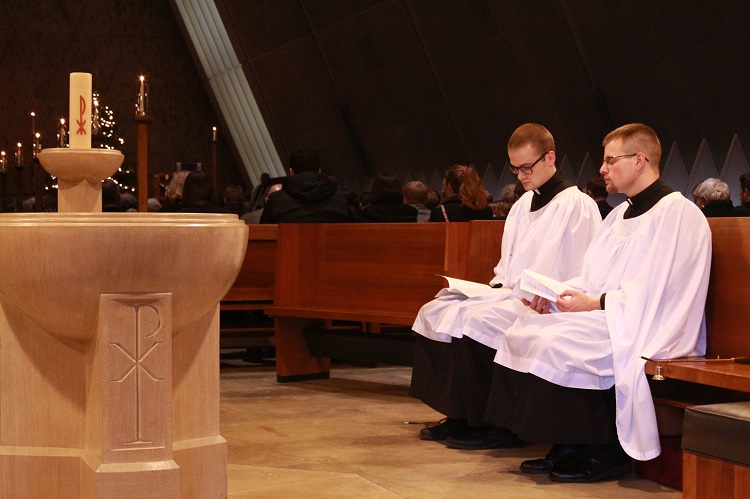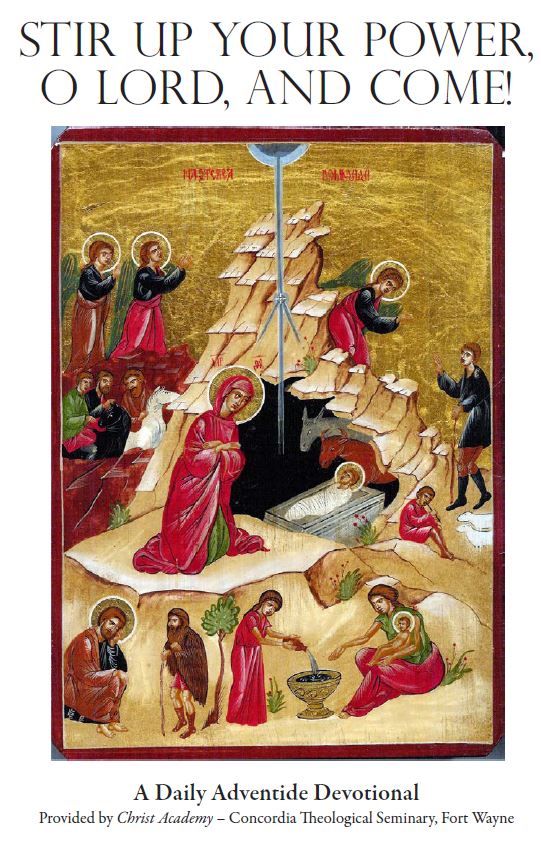Martyred in AD 304 during the Roman persecution under Emperor Diocletian, Lucia (whose name means “light”) was put to death by the sword. She died a virgin, having given away her dowry as an act of Christian charity. Festivals of light are a popular way to commemorate this martyr, especially in Scandinavian countries during the shortest days of the year. Though the truth of the legends that have sprung up around her are impossible to verify (one says that she brought aid to Christians hiding in the catacombs and, to keep her hands free to carry more food, she wore a wreath of candles to light her way), in remembering her during the Advent season we are pointed to the coming of Jesus, the light of the world.
 The people dwelling in darkness
The people dwelling in darkness
have seen a great light,
and for those dwelling in the region and shadow of death,
on them a light has dawned.
Matthew 4:16


